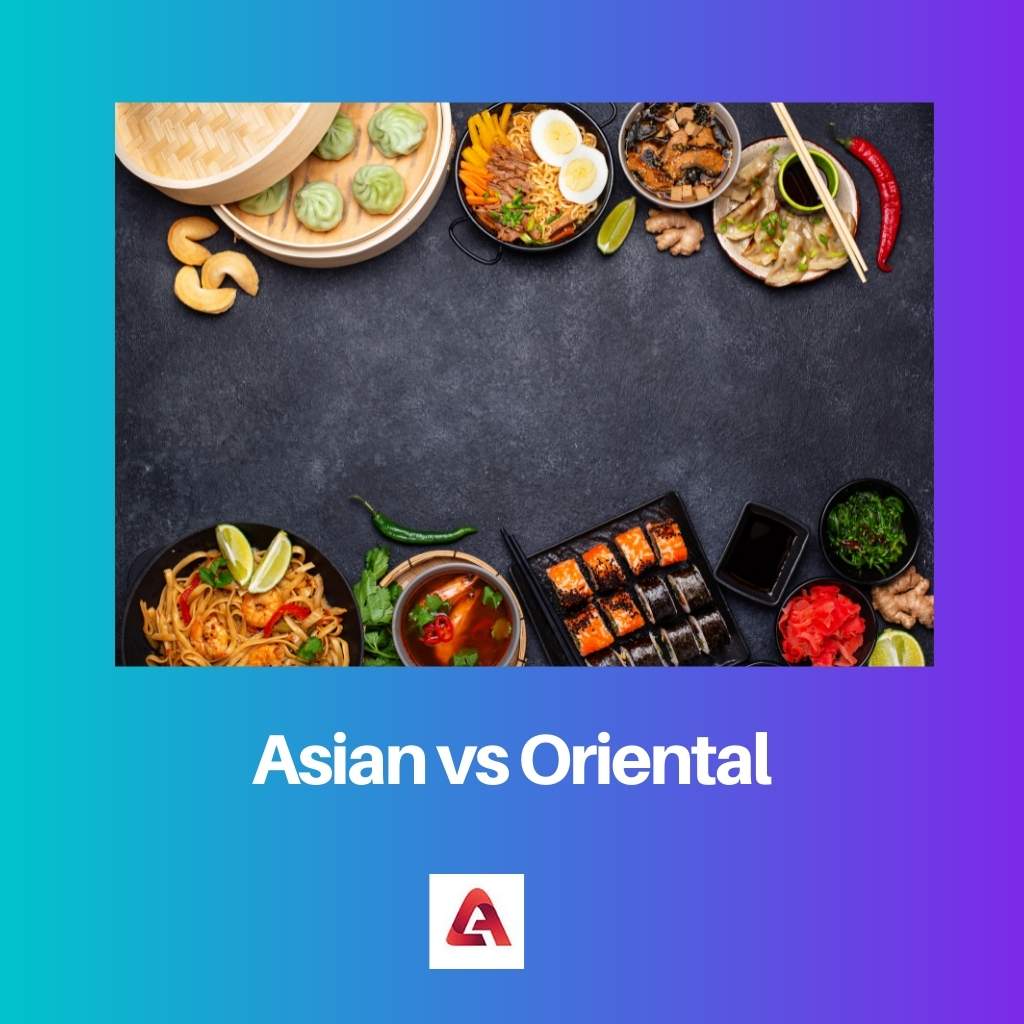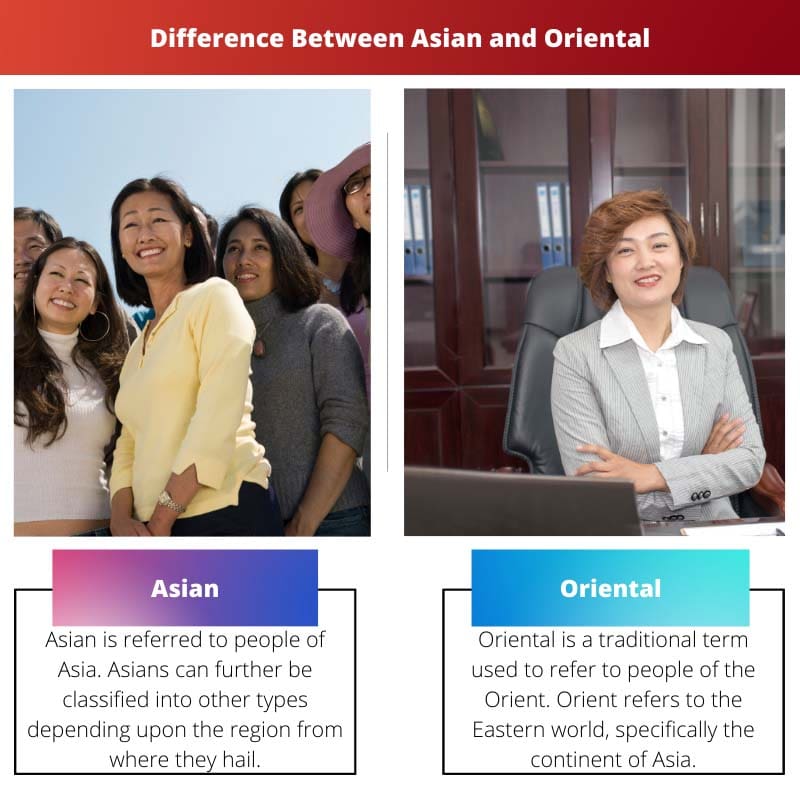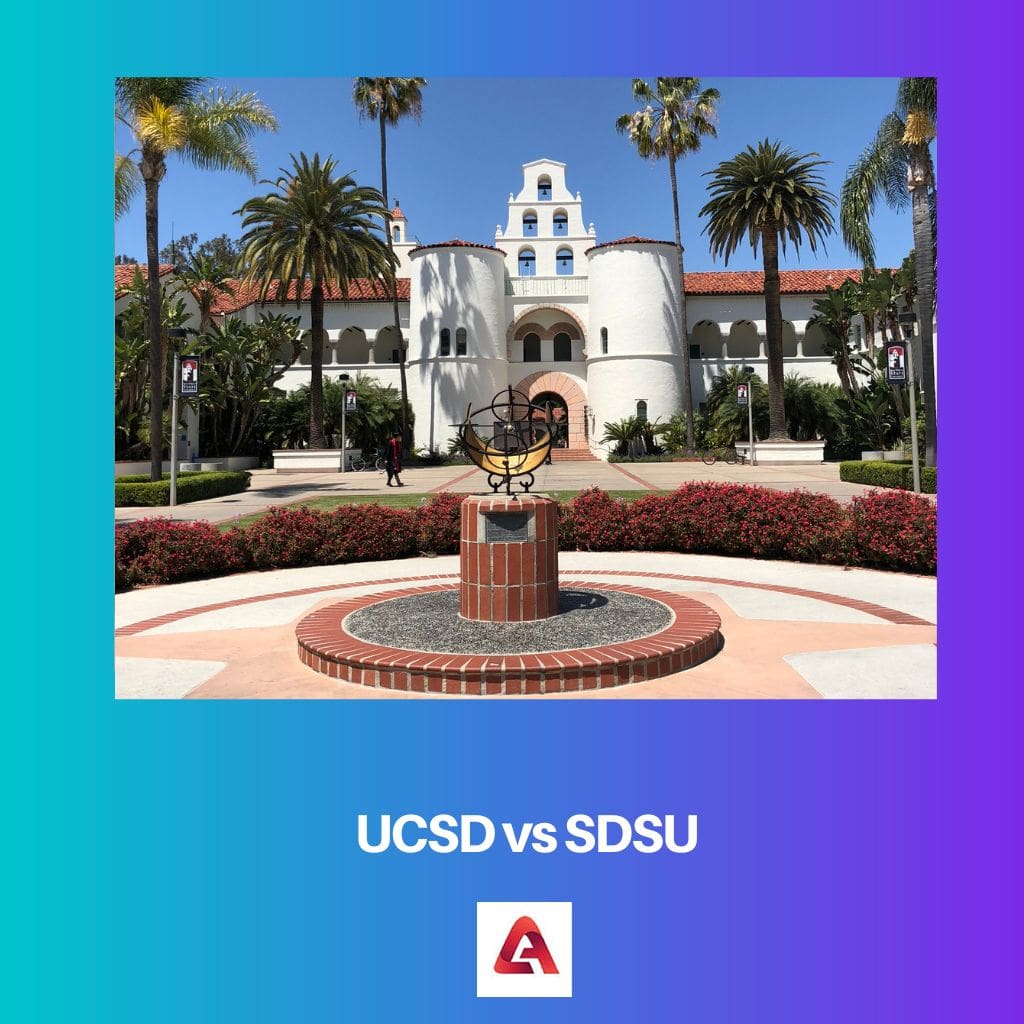While referring to people from a certain region, continent or culture, we use different terms. However, it is crucial to do the research before the usage of the word because some words may be derogatory, discriminative and offensive.
Key Takeaways
- Asian refers to people or things originating from the continent of Asia.
- Oriental is a term used to describe people or things from the Eastern world, especially East Asia.
- While Asian is a neutral term, Oriental can be considered offensive due to its association with colonialism and exoticism.
Asian vs Oriental
Asian is a term used to describe people or things from the continent of Asia, which includes a wide range of diverse cultures and ethnic groups. Oriental is an English term that is used to specifically describe people or things from East Asia, particularly China, Japan, and Korea.

Asian is a standard word and an unconventional word. It does not hurt any religion or promote discrimination. It can be used in public speaking without the fear of being offensive.
While Oriental is an archaic synonym of Asian, it promotes discrimination as the word has a Eurocentric origin. It has been prohibited from use in English and even in many other languages since It is offensive in nature.
Comparison Table
| Parameters of Comparison | Asian | Oriental |
|---|---|---|
| Meaning | It is a word used to refer to the people of the continent of Asia | It is a word used to refer to people of the east |
| Background | It does not have a hurtful historical background | It has a hurtful historical background |
| Offensive | It is not considered offensive | It is considered offensive |
| Origin | Asian has an east of European origin | Oriental has a Eurocentric origin |
| Better word | Asian is a better word | Politically incorrect and outdated word |
What is Asian?
Asian is referred to people of Asia. Asians can further be classified into other types depending upon the region from where they hail.
People from the West try to generalize Asian people with slanted eyes. People from Bangladesh, India, Sri Lanka, and Pakistan do not have such eyes, and hence the generalization is not correct.
In the 1980 Census, the first analysis of general Asians was marked. It had a group with the ancestors of Asian or Pacific Islanders (API).
Americans considered Asians as people from the Pacific Islands and termed Asian and Pacific Islanders together. Later, the words were separated into ”Asian’ and ‘Native Hawaiian or Other Pacific Islander”.

What is Oriental?
Oriental is a traditional term used to refer to people of the Orient. Orient refers to the Eastern world, specifically the continent of Asia.
The Asian people consider Oriental as an offensive word, and hence its use is discouraged. It has a Eurocentric origin, and Asians are from the east of the European countries.
The word Orient is derived from the Latin word “oriens,” which means east. Oriental is also used as an adjective and a noun, and it promotes colonialism.
Oriental is an outdated designation for Southeast Asia. The ideas and philosophies of Oriental people were published in a book called Orientalism by Edward Said.

Main Differences Between Asian and Oriental
- Asian is not an offensive word and politically correct, while Oriental is an offensive word and politically incorrect.
- Asian is considered as a national demonym, while Oriental is not considered as any national demonym.






